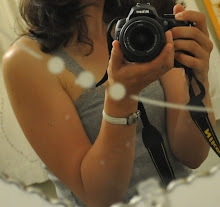How It All Ended. Or Began.
I know my eyes are open, but I can’t see anything. I know my eyes are open because I move the tiny muscles around them just like I always do when they’re open. I strain my eyeballs, and feel the eyelids rub lightly against them as they are pulling up. But nothing. Not a thing.
How long has this been going on? I can’t quite tell. I experiment with my body: I am standing, and my limbs seem to be there – I can’t see them but I feel them (luckily, my proprioception is working well; otherwise, I’d be collapsing to the ground right about now). I lift my hands to my face, touch it – it feels like my face; each hand investigates the other; they are reassuringly mine (there’s a small patch of dry skin on the outer side of the right index finger; both thumbs can do crazy back bends). Then I take a few small tentative steps, first in the direction of what should be straight ahead, then to the left and around. I can walk, and I don’t sense any walls or obstacles nearby. I don’t know if I’m outside or inside, though. The air has a still, windless quality to it, but there’s a scent of an unrestrained space, like the sky.
I listen. I am still and I listen. I listen especially carefully between the breaths so I don’t confuse my inner sounds with what’s out there. Usually an “out-there” comes with a soundtrack: muffled sounds of distant traffic, or the drone of some machinery normally unheard but registered, perhaps a cluster of passing voices or steps or thumps of running feet and whirs of spinning wheels. An object dropped to the ground. An instant crescendo of a bird in flight, approaching with twittering sounds, then disappearing out of earshot. Someone whistling. I listen, but nothing. I am only aware of a low hissing buzz in my ears (like a TV or a computer being on, somewhere inside): probably the sound of my circulating blood, passing down the arteries, oxygenated and strong.
There is nothing left to do but move. I start walking, with long strides – my hope is that eventually I’ll hit an edge or a border or a frontier, and then something will change. It’s not so easy to keep my balance (my eyes are not closed, but it is as if they were), and even though my feet are touching the ground, or something underneath, every time I lift my foot to make another step, there’s a sensation of the ground, or something underneath, falling away or shifting angles minimally. Because this is a continuous and progressive process, I soon don’t know if I am positioned vertically or horizontally. Or if it matters.
There is nothing left to do but move my mind. And so I first strain my memory for the very last thing I remember before this. It proves to be a hopeless job – the snatches of moments I come up with don’t seem to be in any temporal order: my hand in someone’s and long grasses all around; a searing hot summer night and me pacing around the room in my underwear, studying for an exam (the windows are open but the blinds are down); the smell of hay and goats as the broad-smiling angular peasant in a tattered suit squeezes into our car as we pick him up on the long meandering road, driving to the sea; in a sort of a game we play, I keep asking my very pregnant mother to get up from the bed again and again because I like the way she first grabs her left knee with both hands, then pulls herself up.
This is good. This is familiar. This is familiar because it is me the way I know and remember me: a penchant for often lyricized moments (long grasses), for precise detail (tattered suit). Not that it’s useful for my present predicament, but it does serve as a test, as a “mirror.” In this inside mirror I don’t need to see myself physically; it would, however, be nice to have a confirmation from someone or something out there.
And that’s when it strikes me. Like a bullet from a firing squad, it strikes me, the explanation of what happened. It’s the world. It’s the world and everything in it that’s gone. It retreated when I wasn’t looking, and left me, inexplicably, with a body I can’t see, and no out there.
There is nothing left to do but close my eyes, and conjure it all up from scratch.


